“The 8th China-Japan-South Korea Water Science Forum — Advances in Water and Flood Management” was successfully held from October 30th to 31st in Kumamoto, Japan. Co-organized by the Center for Water Cycle, Marine Environment, and Disaster Management of Kumamoto University and the College of New Energy and Environment of Jilin University, the forum invited multiple leading scholars, experts, and industry representatives from China, Japan, and South Korea to attend. Participants had profound discussions on cutting-edge scientific and technological challenges related to sustainable water resources management and flood disaster prevention in the context of urbanization and climate change. As one of the initiators of the China-Japan-South Korea Water Science Forum, the College of New Energy and Environment of Jilin University was represented by the Dean and Prof. Shuangshi Dong, Prof. Youcan Feng, and graduate students, who attended the forum and delivered academic presentations.
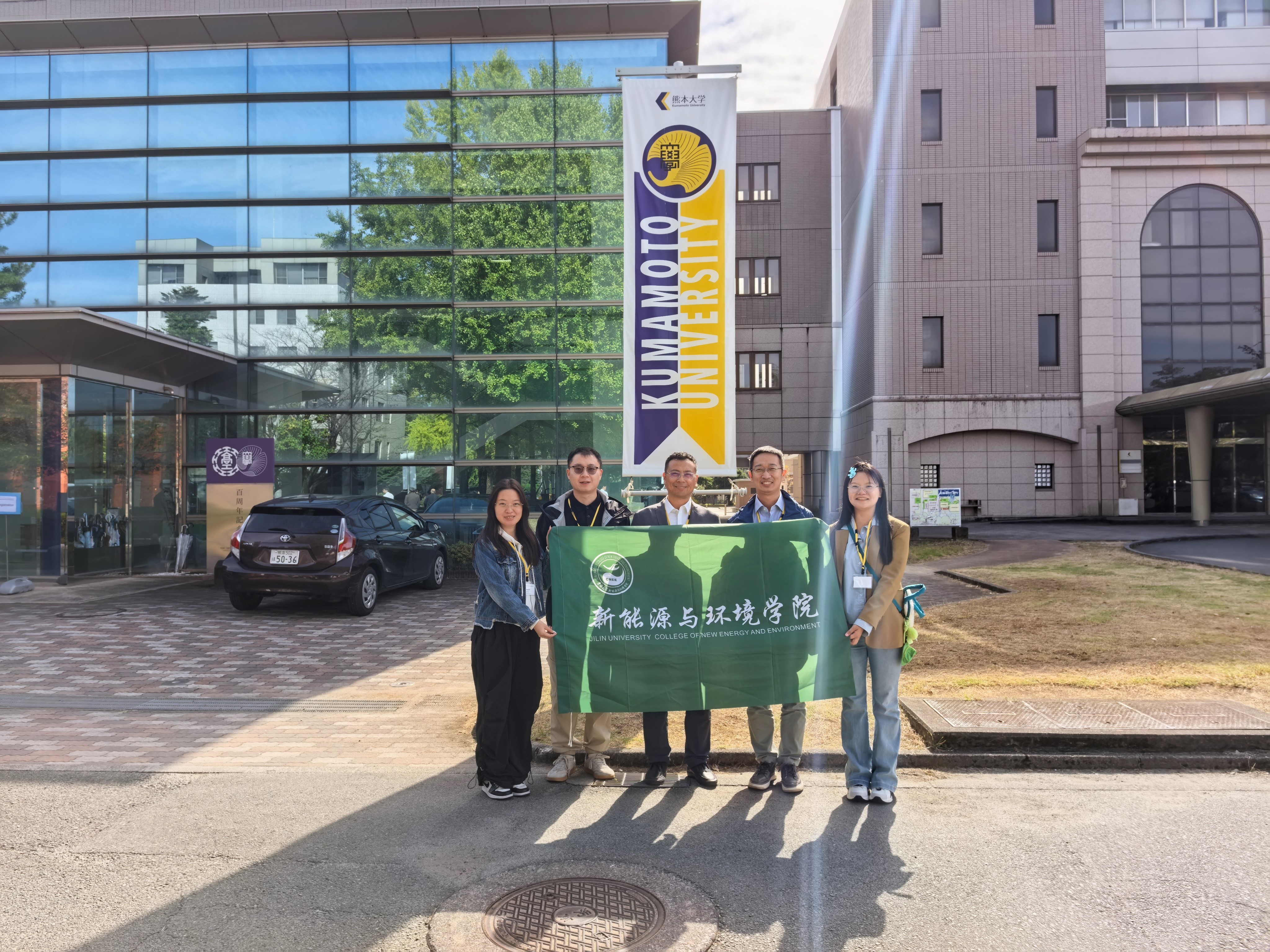
|
Group photo of professors and students from Jilin University |
The opening ceremony featured a welcome address by Vice President Jun Ohtani from Kumamoto University. Associate Prof. Youcan Feng from Jilin University, representing the forum’s initiators, introduced the history and development of the China-Japan-South Korea Water Science Forum. Associate Prof. Kei Ishida from Kumamoto University introduced the J-PEAKS program supported by the Japanese Ministry of Education, Culture, Sports, Science and Technology.
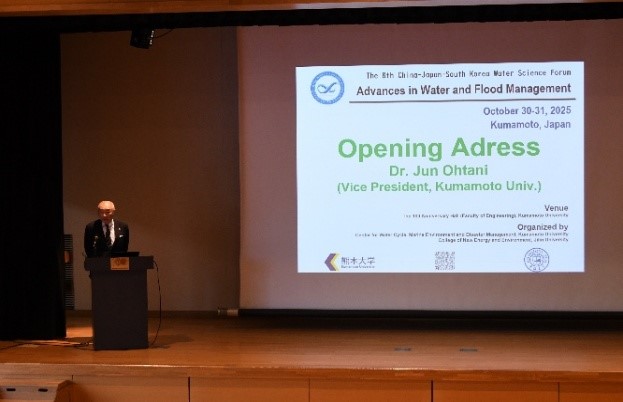
|
Opening Address by Prof. Jun Ohtani, Vice President, Kumamoto University |
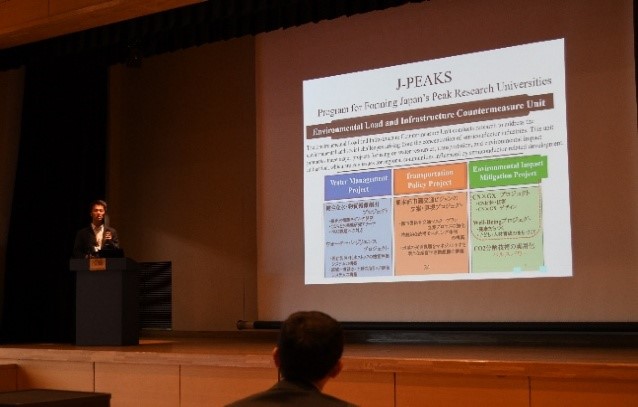
|
Associate Prof. Youcan Feng from Jilin University introduced the Forum Series |
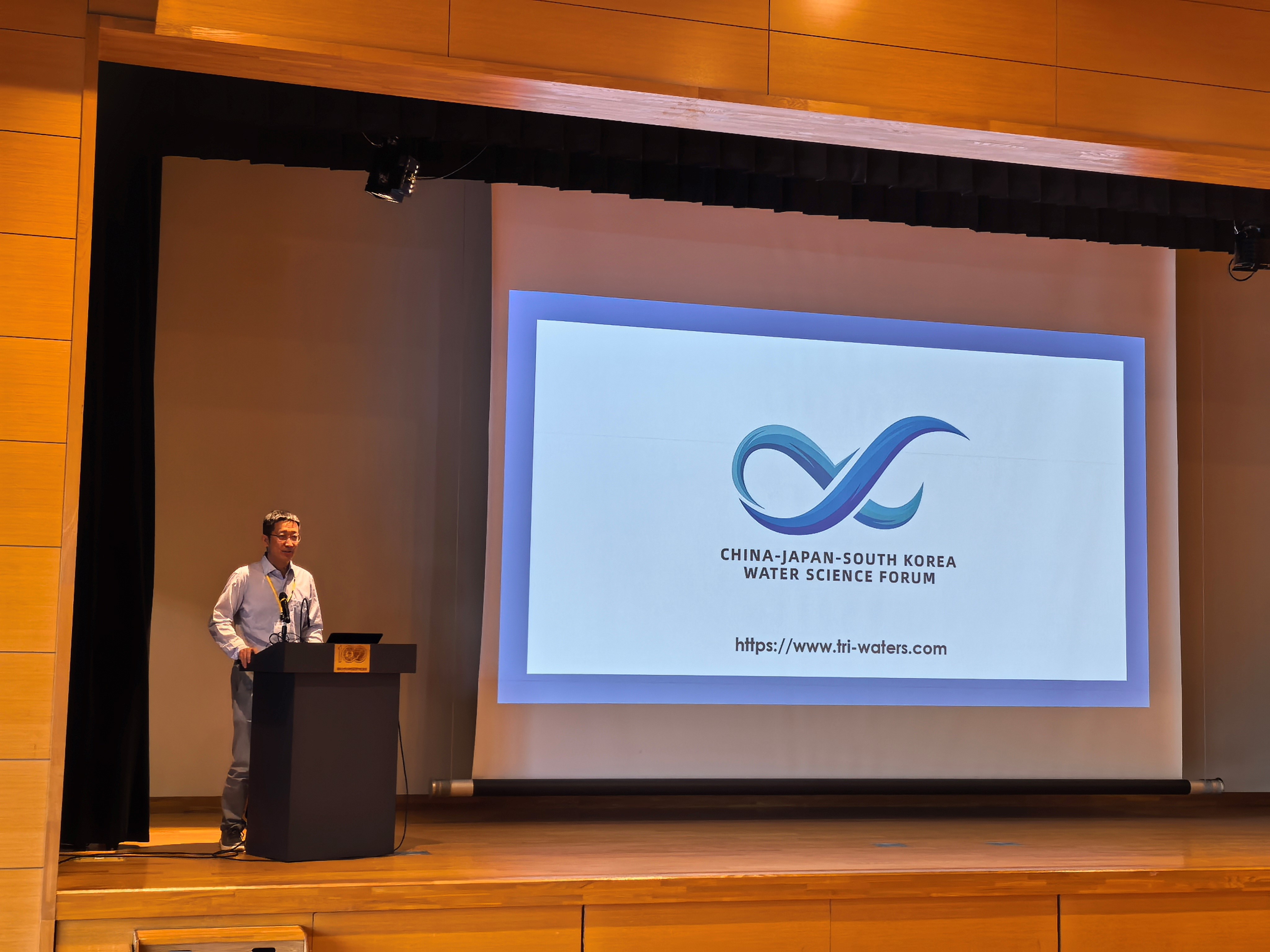
|
Associate Prof. Kei Ishida from Kumamoto University introduced the J-PEAKS program |
Experts and scholars from prestigious universities and research institutions across the three countries presented their latest research findings on various frontier topics. Participating institutions included Jilin University, Tsinghua University, Southern University of Science and Technology, China Institute of Water Resources and Hydropower Research, Xi’an University of Technology, and Changchun Institute of Technology in China; Kumamoto University, Kyoto University, Kyushu University, and Kobe University in Japan; as well as Joongbu University, Kyungpook National University, Hannam University, and the Korea Environment Institute in South Korea. The shared research covered areas such as eco-fluvial dynamics, watershed and urban flood modeling, deep learning-based extreme rainfall forecasting, and water purification catalysts, among others.

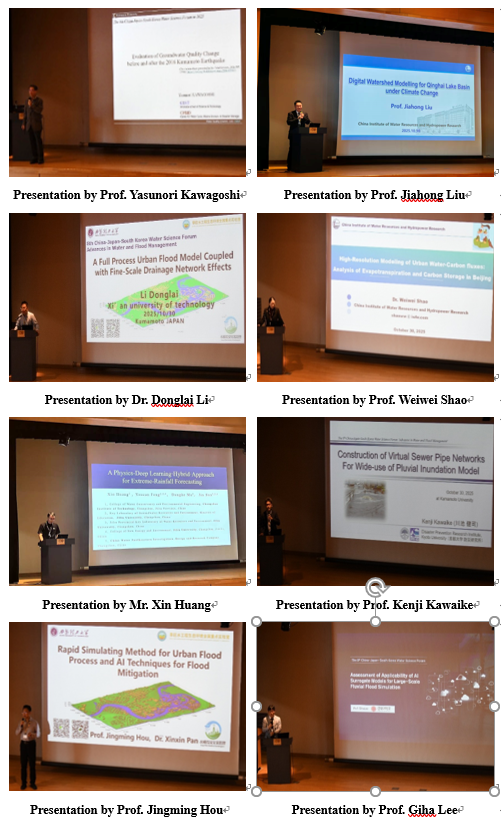
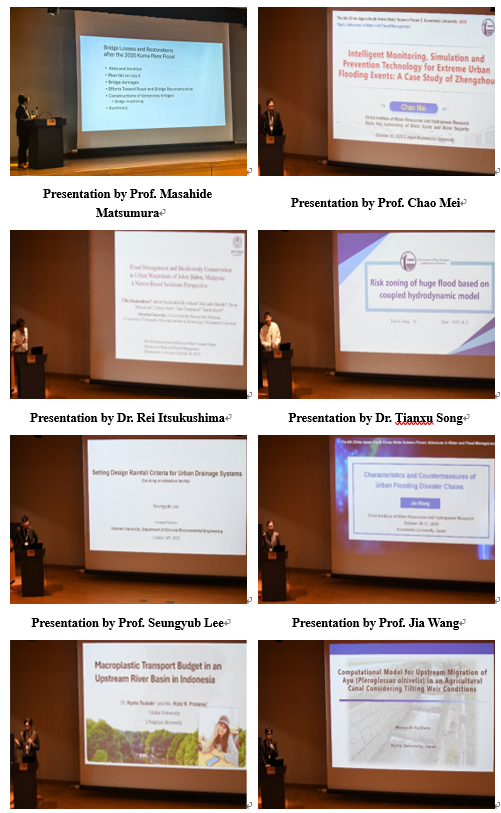
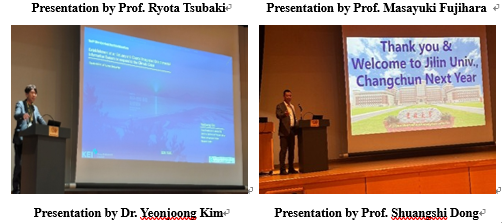
The forum's closing ceremony was addressed by Prof. Tsugihiro Watanabe, as the Chairman of the Japanese Committee of ICID (International Commission on Irrigation and Drainage) and Professor Emeritus of Kyoto University, who expressed gratitude to the participants from various countries and congratulated on the success of the forum.
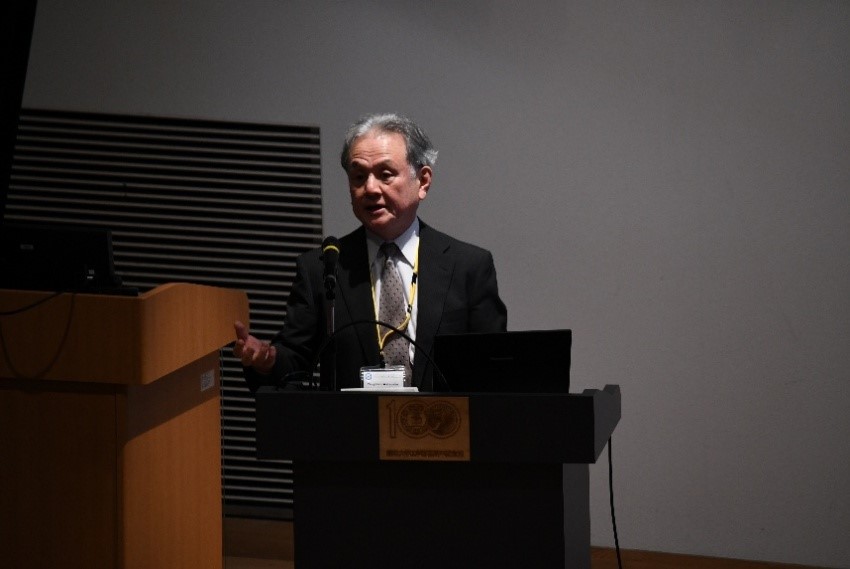
Prof. Tsugihiro Watanabe delivered the closing address

Group Photo
The forum also organized a field trip for attendees to investigate the Shirakawa River Basin enclosing Kumamoto. The attendees were guided to visit key hydraulic facilities along the Shirakawa river network, including the Mt. Aso Nakadake Crater catchment basin and the Uchinomaki Retarding Basin in the upstream, the Aso Tateno Dam at the transition point between upstream and midstream, and the Hanaguri Ide in the downstream area. The field trip provided a valuable opportunity for on-site discussions and communications among the international experts.

The forum drew nearly a hundred scholars and students to attend. As a crucial nexus for deepening exchange and cooperation in water science among the three countries, the China-Japan-South Korea Water Science Forum not only provides an academic platform for sharing new knowledge and catalyzing innovation, but also effectively unites young scholars from the three nations, as the backbone of future collaboration.